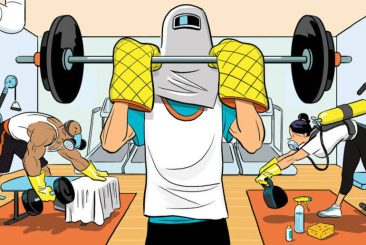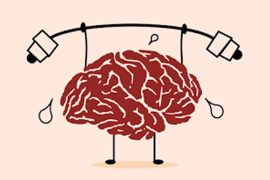With approaching winters, life turns actually slow, metabolically and physically, we get into cozy beds along with our inn-mates dealing our age old and contemporary stories that brew from nowhere and just fall before us uncontrollably. But there exists a population which loves to join gymnasiums and sweat them off to stay in shape and avoid stubborn fats bothering them post winter.
COVID-19 has also worsened the situation, a huge portion of this population was stricken with this ailment and suffering from the post COVID complications hurdling in the ways to their favourite endurance exercises. Whilst doctors have started advising and warning them to think and test themselves whether they are fit enough to hit the track once again.
In post COVID complications which are more engraving cause for the deaths these days includes cardiac arrests and other respiratory failures. But the causes are yet to be established and yet to be unveiled in detailed format. Although the direct causal association of sudden cardiac death and Covid-19 remain unproven, cardiologist Prof Rakesh Yadav and others have said in the Indian Heart Journal – a peer-reviewed publication of the Cardiology Society of India – that sudden cardiac death (SCD) has emerged as one of the disturbing concerns with Covid-19 infection.

Doctors are advising their patients to go through some sort of tests to asses fitness and give a green signal to nail those bench-presses and squats. Simultaneously, the doctors, for the overall wellbeing are advising to start exercises to beat the winter fatigue we face, imposing a substantial doldrum for patients.
Here are the advices and instances that could help you understand the level of your endurance and exertion.
Recently Pune-based 42-year-old Aditya Kelkar, who had run several half and full marathons, passed away long after recovering from Covid-19. The sudden death of 49-year-old well-known fitness expert Kaizzad Capadia due to Covid-19 has also added to the sense of shock among the community of runners and gym-goers.
Nikhil Shah, the coordinator of the group Pune Running that has been in existence for 12 years, said they were shocked to learn about Kelkar’s death. “He had recovered from Covid-19 and started his exercise regimen, climbing hills and cycling. He was among our key runners and then he had this massive heart attack,” Shah said.
Dr Abhijit Lodha, a consulting physician with Ruby Hall Clinic, said that Covid-19 varies widely in the way it affects people. Covid is known to increase blood clotting and hence before undertaking any vigorous exercise, it is prudent to consult a doctor, he said. Shah pointed out that the diet also plays an important role. “Several have the notion that if they are into swimming and cycling, they can eat whatever they want,” he said.
“People are taking up heavy workouts without proper guidance,” said Dr Rituparna Shinde, a cardiologist with Poona hospital. “There is a thin line between exercise and exertion. It is a must to exercise but due care should be taken not to cross certain limits which can trigger the release of certain hormones leading to arrhythmia and causing sudden cardiac death,” the doctor said.
It is also pertinent for those setting out to exercise in their 40s and after 40s to undergo a cardiac evaluation as prevention can be done by controlled and graded monitored exercise,” Dr Shinde said.
Experts also said that participating in these endurance events has become a style statement. Sports physiotherapist Dr Anand Gangwal said that people should remember to exercise more for their personal benefit and less for posting on social media. “There should be an understanding of one’s own body and when to stop exercising,” Dr Gangwal said.
Dr Prashant Mishra, senior cardiologist with Deenanath Mangeshkar hospital, said that before embarking on marathons or high-intensity exercises, people must get evaluated.
Dr Aditya Kelkar, city-based eye surgeon who has organised National Institute of Ophthalmology (NIO) Vision Marathons for the last seven years, said that it was crucial to understand that exercising is also a recreational activity to keep fit.
“Besides post-Covid phase – for three months at least after recovery – underlying undiagnosed asymptomatic hypertrophic cardiomyopathy, arrhythmic tendency, supplements and most importantly a dehydrated state after vigorous exercise are responsible factors (for deaths). It is important to get a proper cardiac evaluation before signing up for a gym programme irrespective of age while an ECG, echo and stress test should be sufficient to screen out high-risk ones,” said Dr Omkar Thopte, a 38-year-old cardiologist who has completed 600 km BRM, an endurance cycling event.
Several cardiologists have also said that gyms should be equipped with automated external defibrillators and staff should be trained in cardiopulmonary resuscitation (CPR) to deal with emergency situations.
Disclaimer:
The information contained in this article is for educational and informational purposes only and is not intended as a health advice. We would ask you to consult a qualified professional or medical expert to gain additional knowledge before you choose to consume any product or perform any exercise.






